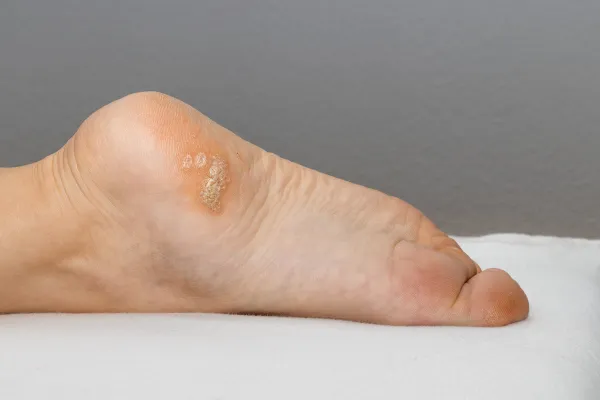Tips & Advice From West Haven Foot and Ankle Center

Plantar Warts 101: Understanding What They Are and How They Form
Plantar warts are a common foot condition that many individuals experience, yet their cause and development can remain a mystery. At West Haven Foot and Ankle, we see numerous patients with plantar warts, and as a dedicated West Haven podiatrist, I’m here to break down what these warts are, how they form, and what you can do if you notice changes in your feet.
Plantar warts are caused by a viral infection in the skin, most often by the human papillomavirus (HPV). The virus thrives in warm, moist environments and can easily be picked up in public places such as pools, locker rooms, and communal showers. When the virus enters the skin through tiny cuts or abrasions, it can cause the development of a wart on the bottom of the foot. Unlike common warts found on the hands, plantar warts grow inward due to the pressure exerted on the foot, which is why they often have a distinctive appearance.
One of the key characteristics of plantar warts is their rough texture. The skin over the wart may appear thickened, and small black dots can be seen on the surface. These dots are actually clotted blood vessels, a natural response by the body to the infection. Many patients initially dismiss these symptoms as mere calluses or corns, but early identification is important. If left untreated, plantar warts can become painful and may even interfere with your daily activities.
There are several factors that can increase your risk of developing plantar warts. Apart from the environmental exposure to HPV, a weakened immune system can make you more susceptible. Conditions like diabetes or peripheral neuropathy, which are commonly managed by a West Haven podiatrist, may also contribute to a higher risk of infections, including plantar warts. Additionally, the type of footwear you use plays a role; shoes that are too tight or that do not allow your feet to breathe can create the perfect conditions for the virus to thrive.
At West Haven Foot and Ankle, we emphasize not only treatment but also prevention. One effective preventive measure is maintaining good foot hygiene. Washing your feet daily with soap and water, thoroughly drying them—especially between the toes—and wearing moisture-wicking socks can significantly reduce your risk of developing these warts. It’s also advisable to avoid walking barefoot in public areas, where the virus is most prevalent.
When it comes to treatment, there are several options available depending on the severity of the condition. Over-the-counter treatments like salicylic acid can help gradually peel away the wart. However, for more stubborn or painful cases, it’s best to consult with a West Haven podiatrist. Professional treatments may include cryotherapy (freezing the wart), laser therapy, or even minor surgical procedures to remove the wart. The right treatment option will depend on your specific situation, and our goal is always to minimize discomfort while effectively managing the condition.
It’s also important to understand that plantar warts can sometimes recur, even after treatment. This recurrence does not necessarily mean that your treatment wasn’t successful—it may simply indicate that the virus is still present in your system. Regular follow-ups with your podiatrist can help monitor your foot health and catch any new developments early.
Living with plantar warts doesn’t have to be a source of embarrassment or constant discomfort. With proper care and attention, most patients experience significant relief and can continue their daily activities with minimal disruption. At West Haven Foot and Ankle, we are committed to providing comprehensive care that addresses both the symptoms and the underlying causes of foot conditions. We work closely with you to develop a treatment plan tailored to your needs, ensuring that your feet remain as healthy and pain-free as possible.
Your foot health is integral to your overall well-being, and early intervention can make all the difference. If you notice any changes in your foot health or suspect you might have a plantar wart, please do not hesitate to schedule a consultation with us. Our team is here to support you every step of the way.
Thank you for taking the time to read this guide. We hope it provides clarity and reassurance about plantar warts and the options available to you.
Ask West Haven Foot and Ankle Center And Their Team
Fill in the form to request a call from our team. One of our team members will call you for FREE and answer any questions or concerns you may have about your condition
Where To Find West Haven Foot and Ankle Center

If you have any questions before scheduling an appointment or for general inquiries, please use the contact us button below. Our team will promptly reach out to assist you.
Opening Hours
Monday: 8am - 5pm
Tuesday: 8am - 5pm
Wednesday: Closed
Thursday: 8am - 5pm
Friday: 8am - 5pm
Saturday: Closed
Sunday: Closed

